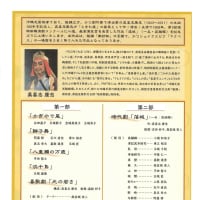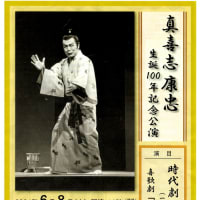安倍首相の戦後70年談話はその裏表≪不誠実、二重性≫で謎めいていた。[転載]を、少し要約してみました。深夜に取り組んだのを少し訂正しました。
Global Researchの Peter Symondsさんの分析です。なるほどです。
Last Friday’s speech by Japanese Prime Minister Shinzo Abe to mark 70 years since Japan’s surrender in World War II was a carefully contrived exercise. It sought to maintain a veneer of pacifism and contrition for the past crimes of Japanese militarism even as his government expands the country’s armed forces and ends constitutional constraints on Japanese participation in new US-led wars of aggression.←これは同感だ。戦後70年を迎えた宣言≪談話≫はかなり注意深く仕組まれたメッセージだった。日本の過去の犯罪への悔悟や平和主義の見せかけ(うわべ)を装って政府による軍事の拡張、憲法の制御にピリオドを打ちアメリカ主導の侵略戦争に参加することも模索(暗示した)した宣言だった。
Every word and phrase in the speech was sifted and weighed for months by a government-appointed committee of academics, officials and political advisers. Abe’s cabinet formally approved the statement before it was delivered and released in Japanese and English, followed several hours later by a Chinese translation.政府が指名した70年宣言≪談話≫文のための委員会、官僚≪スタッフ≫、学者、政治顧問の間で何か月もかなり言葉や表現はふるいにかけられはかりにかけられてきた。つまり練られてきた。日本語、英語、そして中国語にー。
Governments and the media around the world carefully scrutinised the speech for any hint that Abe retreated from the words pronounced in 1995 by then Prime Minister Tomiichi Murayama on the 50th anniversary of the war’s end, and repeated a decade later by Prime Minister Junichiro Koizumi in 2005. Murayama expressed “feelings of deep remorse” and a “heartfelt apology” for Japan’s “colonial rule and aggression.”95年の村山談話、2005年の小泉談話から後退したかどうか世界中の政府やメディアが綿密に吟味した。村山は植民地支配や侵略に対して深い悔悟、こころの底からのおわびをした。
Since taking office in 2012, Abe has boosted the military budget, taken an aggressive stance toward China over disputed islets in the East China Sea, and sought to revise the historical record of Japanese aggression. As prime minister, he has visited the notorious Yasukuni shrine, a potent symbol of Japanese militarism, where class ‘A’ war criminals are interred. Abe has also denied the role of the Japanese military in forcing hundreds of thousands of women—so-called comfort women—into sexual slavery for its troops.
Abe’s statement carefully included all the words and phrases uttered by Murayama and Koizumi, but pointedly included no direct apology of his own and made only an oblique reference to “women behind the battlefields whose honour and dignity were severely injured.”安倍の談話は注意深く村山や小泉が言及したことばを包摂したが、決して直接的な謝罪(おわび)はなされず、あいまいに≪遠まわし≫に言及された。戦場の背後で女性たちの名誉と尊厳がひどく傷つけられた、のように。
Having repeated the required phrases, Abe called for a halt to further apologies, reflecting the deep frustration in right-wing militarist circles over Japan’s “masochistic” approach to history. “We must not let our children, grandchildren and even further generations to come, who have nothing to do with that war, be predestined to apologise,” he declared.これ以上のお詫びはもうなしにしようと要求した。戦争に直接関与していない世代、未来の日本人がお詫びをする≪謝罪≫をすることがないようにしなければならない。自虐史観をやめようと訴えた。
Abe also took an indirect swipe at China, insisting that Japan in the 1930s and 1940s had been “a challenger to the international order” but would not do the same again. Following Washington, the Abe government has repeatedly accused Beijing of failing to adhere to the “international order” and pursuing expansionist policies in relation to maritime disputes in the South China and East China Seas. In reality, the US as part of its “pivot to Asia,” has provocatively inflamed these disputes and encouraged allies like Japan to take a more aggressive posture toward China.安倍は中国に対して遠回しの非難【一撃】を与えた。つまり1930年代、40年代に日本は世界秩序へ挑戦したが同じようにはいかないよと。安倍はアメリカに従って北京に対して東シナ海、南シナ海での海域をめぐる論争に関して、拡張主義的政策を世界秩序の遵奉から踏み外しているよと批判している。実際はアメリカがアジアの基軸(要)としてこれらの論争≪対立≫に火をつけて煽り、日本が中国に対してもっと強引な姿勢をとるように誘導している。
Abe vowed that Japan would “firmly uphold basic values such as freedom, democracy and human rights as unyielding values and, by working hand in hand with countries that share such values, hoist the flag of ‘Proactive Contribution to Peace’ and contribute to the peace and prosperity of the world more than ever before.”安倍は自由、民主主義、人権を決して譲るべからず価値として保持すると誓った。積極的平和主義の旗を掲げて。
Every phrase was riddled with duplicity and lies. The banner of “democracy” and “human rights” is precisely the pretext that the US has used to wage its criminal wars of aggression in the Middle East and Afghanistan. Abe is currently seeking to ram widely unpopular legislation through the Japanese parliament to circumvent the country’s post-war constitution and engage in “collective self-defence”—that is, extend the participation of the Japanese military in US-led wars and interventions.
談話のそれぞれの文言(表現)は裏表があり謎めいて、嘘だった。民主主義、人権の旗印は、アメリカが中東やアフガニスタンに犯罪的侵略戦争を仕掛けたときの言い訳に他ならない。安倍はまったく人気のない集団的自衛権、戦争法案をもくろんでアメリカ主導の戦争や干渉に参加することを意図している。
Abe paid tribute to a list of countries—the US, Australia and European nations—that Japan fought in World War II and are lining up against China.安倍はかつて日本がWWIIで戦った国々を訪問し、中国包囲網国家に並んでいる。
Abe’s catch-phrase of “pro-active pacifism” was aimed at justifying his government’s military build-up, restarting of arms exports and increasingly provocative stance against China. These all contradict Article 9 of the country’s constitution, which renounced war forever and declared that land, air and sea forces would never be maintained.
However, the most significant aspect of Abe’s speech—on which the media barely commented—was the introduction, which briefly recounted Japan’s rise in the 19th and 20th centuries. While not overt, his remarks unmistakeably defended Japanese imperialism. They echoed the war-time propaganda of the 1930s and 1940s—that Japan was waging a war for the liberation of Asia from the “Western powers”. しかしながらメディアがほとんど言及しなかったが、安倍談話の重要な観点は、日本が19世紀から20世紀にかけて世界へ登場したことを簡潔に物語った。公然とではないが、彼の見解は間違いなく日本の帝国主義を擁護していた。それらは戦時中30年代から40年代のプロパガンダ、西欧列強の力(帝国主義)からアジアを解放するために戦争を引き起こした!!!
“More than one hundred years ago, vast colonies possessed mainly by the Western powers stretched out across the world,” Abe declared.100年以上前、多くの植民地は西欧列強によって所有されていた。
“With their overwhelming supremacy in technology, waves of colonial rule surged toward Asia in the 19th century. There is no doubt that the resultant sense of crisis drove Japan forward to achieve modernisation… The country preserved its independence throughout. The Japan-Russia war gave encouragement to many people under colonial rule, from Asia to Africa.”
19世紀、西欧が圧倒的な技術力でアジアを植民地化していた。日本は近代化を促進した。日露戦争はアジアからアフリカまで植民地支配の国々に勇気を与えた。
While it is certainly true that the prospect of Western colonisation drove the Japanese ruling elites to build a modern capitalist economy, as well as a military machine, at breakneck speed, the result was not simply an “independent” country, but an imperialist power that sought to carve out its own colonial possessions. Japan’s defeat of Russia in 1905 led to the brutal colonial subjugation of Korea, just as its war against China in 1894–95 resulted in the takeover of Formosa, now Taiwan.
Abe presented Japan’s aggression against China—the seizure of Manchuria in 1931 and the invasion of the remainder of China from 1937—as an inadvertent mistake and the product of forces beyond its control. Again, the Western powers were to blame.
“With the Great Depression setting in and the Western countries launching economic blocs by involving colonial economies, Japan’s economy suffered a major blow. In such circumstances, Japan’s sense of isolation deepened and it attempted to overcome its diplomatic and economic deadlock through the use of force… In this way, Japan lost sight of the overall trends in the world… Japan took the wrong course and advanced along the road to war.”
この部分はつまり西欧の植民地化に火をつけられ、危機感から近代化をはかり自ら帝国になっていった。1905年の日露戦争の勝利は残虐な韓国の植民地支配に至り、1894-95の日清戦争の結果が台湾の植民地化(分捕り)に至った。満州国の統治は間違っていたとするが、責任を西欧に負わせている。西欧列強からの経済制裁なども受け孤立化から武力により打開を求めたが世界的視野に欠け、間違った戦争への道に突き進んだ。つまり悪いのは西欧列強である、のスタンスがにじみ出ている。
Of course, Abe did not resurrect the slogan of a “Greater East Asia Co-Prosperity Sphere,” which Japan’s militarist regime used to justify its conquest and colonial rule of much of East Asia as it fought US imperialism and its allies for domination of the region. But his speech was laced with the sentiment that Japan tried to liberate Asia from the Western powers. While not openly expressed, this attitude still prevails within militarist sections of the Japanese ruling elite, who believe that the country’s only misdeed was that it lost the war.
安倍は大東亜共栄圏のスローガンを復活させなかった。それは日本の軍事政権がその植民地支配や征服を正当化することにもちいた。アメリカとその同盟国に戦争を挑んだのである。彼のスピーチは日本がアジアを西欧の力から解放しようとしたとする感情を引き寄せていた。公に表現されてはいないけれど、日本の軍事的支配エリート層の中に見られる態度であり、彼らは国の唯一の誤りは敗戦だと信じている。
Abe’s statement received muted criticism from the Chinese and South Korean governments, which routinely whip up anti-Japanese sentiment to divert attention from their social and economic crises at home. A Chinese foreign ministry statement described Abe’s speech as “evasive” for failing to make an “explicit statement on the nature of the war.” South Korean President Park Geun-hye said Abe’s remarks “left much to be desired,” but made no specific criticism.
中国の外務大臣は戦争の本質への明白な談話ではなく責任逃れ(ごまかし)だと批判した。韓国大統領は「もっと≪謝罪などが≫望ましい」と言及したが特別な批判はしなかった。
The American and international media appear to have heaved a collective sigh of relief that Abe included all the stock phrases and did not antagonise South Korea, in particular. As part of its “pivot to Asia” aimed at encircling China militarily, the Obama administration has gone to great lengths to establish greater collaboration between Japan and South Korea, two US allies, on intelligence and military matters.
Abe’s historical references, however, were no slip of the tongue. His rationalisation of Japanese aggression in World War II was an indication that “proactive pacifism” will be the banner, not simply for participating in US-led wars of aggression, but for prosecuting the independent interests of Japanese imperialism by military force, even if it again means conflict with rival powers such as the United States.安倍の歴史的な引用≪言及≫は口が滑ったものではない。日本の第二次世界大戦の侵略戦争への合理性は、積極的平和主義を旗印に、単にアメリカ主導の攻撃≪侵略≫に加担するだけではなく、アメリカと対抗することになりえる日本独自の軍事増強による帝国主義への野望を追求したものだった。←つまりかなり本音を示唆していた。



















